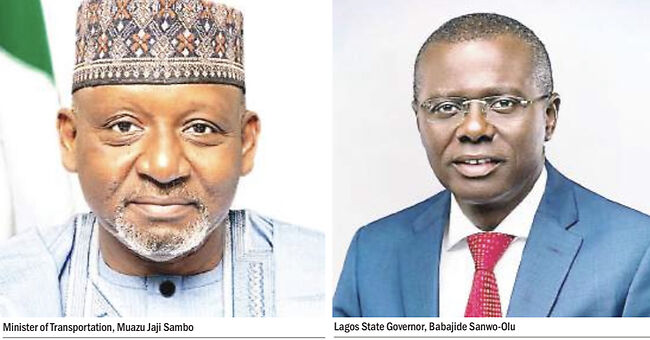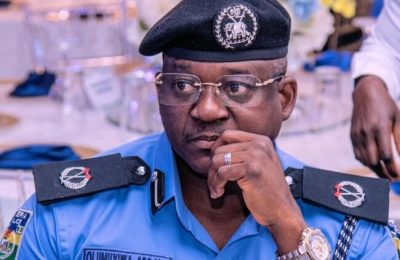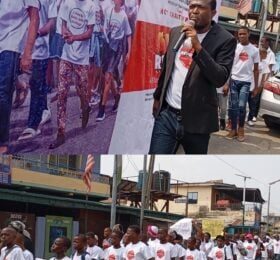
The year 2023 is expected to be eventful for Nigeria’s Maritime and Rail sectors in 2023 following new developments towards the tail end of 2022, which have driven high expectations from stakeholders, writes TOLA ADENUBI.

CVFF Disbursement
THE Nigerian maritime scene frounded off in 2022 with announcement by the Minister of Transportation, Alhaji Muazu Jaji Sambo, that President Muhammad Buhari has approved the disbursement of the S350m and N16b Cabotage Vessel Financing Fund (CVFF) to indigenous shipowners.
The CVFF is an intervention fund created by the Federal Government in 2003 for the development of indigenous shipping capacity in Nigeria through the maintenance of existing vessels or the purchase of new ones. The primary source of the fund is from a two percent deduction on cabotage trade earnings carried out by indigenous operators in the nation’s inland and coastal trade.
With the approval by Mr President for disbursement coming in the last quarter of 2022, stakeholders are eagerly expecting a disbursement of the fund before the close of 2023 Q1.
Speaking with the Nigerian Tribune on the matter, a former Chairman of the Nigerian Indigenous Shipowners Association (NISA) and MD/CEO, Sea Transport Group, Mallam Aminu Umar, explained that, “I expect the fund to have been disbursed before the end of the first quarter of 2023, with all what has been laid out by the Ministry of Transportation.
“The approval for disbursement is currently on the table of the Director-General of the Nigerian Maritime Administration and Safety Agency (NIMASA), Dr Bashir Jamoh. The Minister of Transportation told us that the approval has been forwarded to the NIMASA DG, and I know the DG of NIMASA is currently finetuning modalities for disbursement.
“Given that national election is in February, I expect the disbursement of the fund to be wrapped up before the end of first quarter of 2023
“I also expect that the new government that will be sworn in by May will continue the engagement of indigenous shipowners in the area of capacity development,” said Umar.
Deep blue project
The Deep Blue Project also called the Integrated National Security and Waterways Protection Infrastructure, in collaboration with the international community, has recorded tremendous success in 2022, restoring sanity to Nigerian waters.
With more assets expected to be deployed to the Deep Blue project, security on Nigerian waters is expected to be much more enhanced in 2023.
A United Nations report in 2022 revealed that presence of international Navies in the Gulf of Guinea (GoG) and the collaborative efforts of the Nigerian Government through the Deep Blue project has seen criminal elements abandon attack on ships and kidnapping of seafarers.
NIMASA is expected to maintain the gains of the Deep Blue project through training and re-training efforts of the project’s Naval personnel in order to ensure a safer and calmer water all through 2023.
IMO council elections
Nigeria, in December 2021, failed in its un- relenting effort at rejoining the elitist group of maritime nations seated in the different councils of the International Maritime Organisation (IMO).
2023 provides another golden opportunity for the country to again cast its lot and see if it can regain a seat it last won in 2009.
The IMO, through three different Councils, Category A, B and C, makes policies that affect global maritime trade, while election into these Councils are done every two years.
With the visit of the IMO Secretary General, Mr Kitack Lim, to Nigeria to inspect and commission some maritime facilities built by the Nigerian Maritime Administration and Safety Agency (NIMASA), and infrastructural upgrade of the nation’s maritime training institution, Maritime Academy of Nigeria located in Oron, Akwa Ibom State, many stakeholders are hopeful that Nigeria is on the right path to returning to the IMO Council seat.
Speaking with the Nigerian Tribune exclusively on Nigeria’s chances at returning to the IMO Council seat in 2023, President of the Nigerian Association of Master Mariners (NAMM), Captain Tajudeen Alao, expressed confidence that Nigeria is set to return to the prestigious maritime group by end of 2023.
According to Captain Alao, “Once the world identifies with you, it means there are certain things that you are doing right. The IMO Secretary General was in Nigeria last year. Out of the man’s busy and tight schedule, he found time to come to Nigeria, and he didn’t leave in a hurry. He spent days here attending events and commissioning projects. It’s a sign that Nigeria is doing things right.
“A foundation has already been laid with that visit and what we need to do now is to close the gaps noted during the last audit. We still have time to do that. Category C is for nations that show and demonstrate special interest in marine transportation and navigation.
“We have already closed some of the gaps identified during the audit and we still have time to close more gaps. With what we have achieved at the Maritime Academy of Nige ria, coupled with what the Deep Blue project has achieved in the last one year, I am very confident that Nigeria will return to the IMO Council seat when elections begin by end of the year.”
New transportation trend
With the completion of the first phase of the Lagos Rail Mass Transit Blue Line from Marina to Mile 2 by close of 2022, Nigerians are set to witness in 2023 an entirely new form of rail transportation that is powered by electricity and not diesel as commonly used by the Nigerian Railway Corporation (NRC).
The blue line project is one of the six rail lines and monorails prescribed for Lagos in the state’s Strategic Transport Master Plan (STMP) and its construction had been divided into phases for ease of implementation.
On completion, the entire railway system is to move more than 500,000 passengers daily. That also translates into over 182 million passengers a year. The Blue Line alone is expected to move about 31 million commuting Lagos population in a year, with a daily average of about 84,000 passengers.
The Lagos Rail Mass Transit Blue Line is an Electric Motor Unit (EMU) Scheme, with a total distance of about 27km from Marina to Okokomaiko and will be served by 11 stations.
The alignment track is designed to have both elevated and at ground level dimensions. This plan was initiated by the Lagos State Government to meet the current economic and population demands of the State.
The Lagos blue line mega station buildings on Marina and Mile 2 are architectural wonders, with the elevated high bridge railway track over Lagos lagoon, the National Theatre wetland neighbourhood and running parallel with the CMS long motor bridge.








